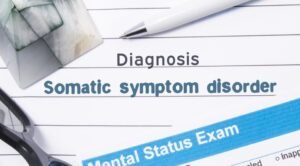Introduction to the study:
A recent study conducted at the University of Sydney has found that inappropriate and unnecessary medications seem to be routinely prescribed for newly diagnosed dementia patients. This longitudinal research study of 2,500 people was conducted in collaboration with the University of Kentucky and Yale University and published in the Journals of Gerontology: Medical Sciences.
Estimates of people currently living with dementia is approximately 50 million worldwide. In Australia the estimate is approximately 425,000 costing the country more than $15 billion per year and is currently the second leading cause of death.
Study and Conclusions:
The lead author, Dr. Danijela Gnjidic, NHMRC Dementia Leadership Fellow and Senior Lecturer from the Faculty of Pharmacy and Charles Perkins Centre at University of Sydney stated that “Our study found that following a diagnosis of dementia in older people, medication use increased by 11 per cent in a year and the use of potentially inappropriate medications increased by 17 percent”. She went on to say, “These medications are typically recommended for short term use but are commonly used long term by people with dementia,”
Some of the more common unnecessary and inappropriate medications are pain pills, sleep aids, depression medications and drugs for acid reflux referred to as proton pump inhibitors
A number of reasons were given to account for this including a lack of time in the patient and physician encounters, inappropriate guidelines, difficulty in setting goals with the patient and difficulty in the communication and comprehension of the patient.
She stated, “These findings are of major concern and highlight the importance of weighing up the harms and benefits of taking potentially unnecessary medications as they may lead to increased risk of side effects such as sedation or drowsiness, and adverse drug events such as falls, fractures and hospitalization.” She felt that increased efforts need to be made to support the recognition and potential use of medications that are inappropriate to minimize harm to patients.
Finally, Dr. Gnjidic concluded that “For Australians living with dementia and their caregivers (who commonly are responsible for managing medications for people with dementia), the key is to communicate closely with general practitioners, pharmacists and other health professionals to make informed decisions and to practice good medicine management techniques to minimize the risk of side effects.” Also, she commented that “Deprescribing unnecessary medications may improve an individual’s quality of life and can reduce unnecessary healthcare cost.”
Adapted by Paul Susic Ph.D. Licensed Psychologist from article at ScienceDaily: Dementia Diagnosis Linked to Unnecessary Medication Use dated Apr. 19, 2018
Story Source:
Materials provided by University of Sydney. Note: Content may be edited for style and length.
Journal Reference:
Danijela Gnjidic, George O Agogo, Christine M Ramsey, Daniela C Moga, Heather Allore. The impact of dementia diagnosis on patterns of potentially inappropriate medication use among older adults. The Journals of Gerontology: Series A, 2018; DOI: 10.1093/gerona/gly078




